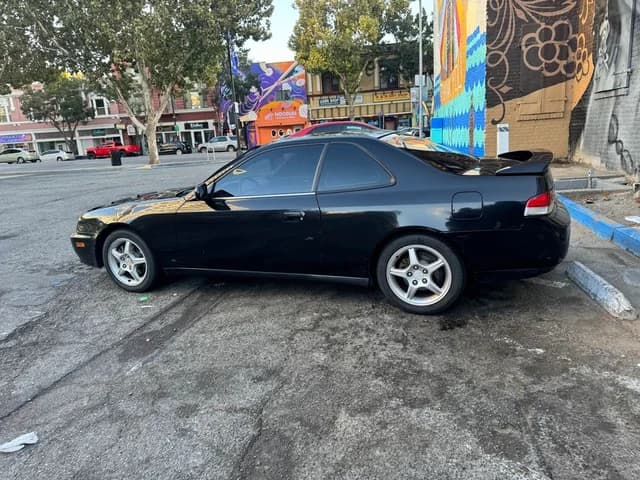
I’ve owned a 00 base model and a 97 SH. If you find a base model you like, I’d go with that. The SH is nice but it’s older tech that might cause problems later, and parts could be tough to find. I turned my SH into a base model, but that takes more work and money.
Looks in good shape. Ask for maintenance records, especially for the timing belt and water pump. That’s usually the biggest maintenance item for these. The H22s can burn oil. You won’t be able to check that while looking at the car, but it’s something to keep an eye on afterward. Don’t forget to take care of all fluids after you buy it, like engine oil and transmission fluid.
@Drew
How many miles do you think I could get out of it before needing a major fix, like a motor replacement? The guy says he’s done the timing belt and some other stuff.
Wren said:
@Drew
How many miles do you think I could get out of it before needing a major fix, like a motor replacement? The guy says he’s done the timing belt and some other stuff.
Most older B, H, F, and D series engines can easily reach 300k miles if cared for. It’s hard to mess up any 90s Honda motor. They can run without oil for a long time.
@Jules
I had a 94 Civic Si with no oil on the stick once. I added oil and it ran for another two years without problems. D16 engines are great. I’ve always wanted one of these Preludes.
Jonah said:
@Jules
I had a 94 Civic Si with no oil on the stick once. I added oil and it ran for another two years without problems. D16 engines are great. I’ve always wanted one of these Preludes.
For real, it’s impressive how simply and well-engineered the older engines are. I love the videos of them draining fluids and revving them to the limit. Civics will keep going long after other cars fail.
Wren said:
@Drew
How many miles do you think I could get out of it before needing a major fix, like a motor replacement? The guy says he’s done the timing belt and some other stuff.
If the engine is well maintained, there shouldn’t be a major failure. If you can, take a mechanic with you to check it out. A compression test is a solid way to see how the engine is doing. The transmission is just as crucial. Make sure to test the car in all gears and speeds, especially on the highway. The manual should be reliable if it was driven properly. If the shift points are very high, the clutch might be worn out. That’s a big job since you’d need to take out the transmission. It’s also a good idea to replace the rear main seal at that time. After buying, do a valve adjustment and other tune-ups like spark plugs.
Wren said:
@Drew
How many miles do you think I could get out of it before needing a major fix, like a motor replacement? The guy says he’s done the timing belt and some other stuff.
It’s a Honda. Engine replacements rarely happen.
Be ready for anything to fail. 200k on a 20-year-old car usually means it’s near the end of its life.
Axel said:
Be ready for anything to fail. 200k on a 20-year-old car usually means it’s near the end of its life.
Truth
If you can negotiate the price to $4k, that’s a solid deal! I see ugly hatchbacks with single cam non-VTEC selling for $6k all the time. This Prelude looks clean.
Not worth $5k. It really depends on the maintenance records, so double-check what’s recommended.
You shouldn’t buy it. Just forward the post and location to me.
I’ve always liked that Prelude. Good luck with it.
Ask if it burns oil. The H22A4s seem to have an issue with that.
Juno said:
Ask if it burns oil. The H22A4s seem to have an issue with that.
They burn oil every time you use VTEC. Mine did this from new.
Juno said:
Ask if it burns oil. The H22A4s seem to have an issue with that.
This is true
Things like the suspension, timing belt or chain, water pump, crankshaft seal(s), VTC actuator, exhaust, and now at 200k, the engine and transmission might be wearing out. That’s usually when things start failing.
The main issue with those is the H block with its FRM cylinder liners. They’re very hard and will eventually wear out the rings. When that happens, you’re basically done. You can’t hone or bore those blocks because the liners can delaminate. That’s pretty much the end for those blocks. The C32B in the NSX has the same problem. Other than that, they’re usually solid.